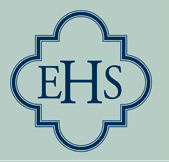
Sir Barrington Windsor Cunliffe,, known as Barry Cunliffe, is a British archaeologist and academic. He was Professor of European Archaeology at the University of Oxford from 1972 to 2007. Since 2007, he has been an emeritus professor.
Ernest Fraser Jacob was a British medievalist and scholar who was President of the Chetham Society, Lancashire Parish Register Society and Ecclesiastical History Society.
Michael Gordon Fulford, is a British archaeologist and academic, specialising in the British Iron Age, Roman Britain and landscape archaeology. He has been Professor of Archaeology at the University of Reading since 1993.
The Institute of Historical Research (IHR) is a British educational organisation providing resources and training for historical researchers. It is part of the School of Advanced Study in the University of London and is located at Senate House. The institute was founded in 1921 by A. F. Pollard.
Christopher Nugent Lawrence Brooke was a British medieval historian. From 1974 to 1994 he was Dixie Professor of Ecclesiastical History at the University of Cambridge.
Martin Biddle, is a British archaeologist and academic. He is an emeritus fellow of Hertford College, Oxford. His work was important in the development of medieval and post-medieval archaeology in Great Britain.
Sir Ian Archibald Richmond, was a British archaeologist and academic. He was Professor of the Archaeology of the Roman Empire at the University of Oxford. In addition, he was Director of the British School at Rome from 1930 to 1932, President of the Society for the Promotion of Roman Studies from 1958 to 1961, and Director of the Society of Antiquaries of London from 1959 to 1964.
John Joseph Wilkes, is a British archaeologist and academic. He is Emeritus Yates Professor of Greek and Roman Archaeology at University College London.
Dame Rosemary Jean Cramp, is a British archaeologist and academic specialising in the Anglo-Saxons. She was the first female professor appointed at Durham University and was Professor of Archaeology from 1971 to 1990. She served as president of the Society of Antiquaries of London from 2001 to 2004.
Peter Spufford, was a British historian and academic, specialising in the economics of Medieval Europe. He was Professor Emeritus of European History at the University of Cambridge.
Kenneth Arthur Steer, was a British archaeologist and British Army officer. During World War II, he saw active service in Italy and later served as a Monuments Man in Germany. From 1957 to 1978, he served as Secretary of the Royal Commission on the Ancient and Historical Monuments of Scotland.
Margaret Evelyn Buxton, known by her first married name Margaret Aston, was a British historian and academic specialising in the Late Medieval Period and ecclesiastical history. During her career, she lectured at both the University of Oxford and the University of Cambridge.
Alexandra Marie Walsham is an English-Australian academic historian. She specialises in early modern Britain and in the impact of the Protestant and Catholic reformations. Since 2010, she has been Professor of Modern History at the University of Cambridge and a Fellow of Trinity College, Cambridge. She is co-editor of Past & Present and Vice-President of the Royal Historical Society.
Nancy Margaret Edwards, is a British archaeologist and academic, who specialises in medieval archaeology and ecclesiastical history. Since 2008, she has been Professor of Medieval Archaeology at Bangor University.
Vincent Gillespie, FEA is Emeritus J. R. R. Tolkien Professor of English Literature and Language at the University of Oxford. He was editor of the Exeter Medieval Texts and Studies Series from 2002 until 2023, and is the Honorary Director of the Early English Text Society, having previously served as its executive secretary. His major research area is late medieval English literature. He has published over sixty articles and book chapters ranging from medieval book history, through Geoffrey Chaucer and William Langland, to the medieval mystics such as Richard Rolle and, most recently, Julian of Norwich. He has a special interest in the medieval English Carthusians, and in Syon Abbey, the only English house of the Birgittine order. In 2001, he published Syon Abbey, Corpus of British Medieval Library Catalogues 9, an edition and analysis of the late-medieval library registrum of the Birgittine brethren of Syon Abbey. He is the author of Looking in Holy Books, and the forthcoming A Short History of Medieval English Mysticism. He is the co-editor, with Kantik Ghosh, of After Arundel: Religious Writing in Fifteenth-Century England, with Susan Powell of A Companion to the Early Printed Book in Britain, 1476-1558, with Samuel Fanous of The Cambridge Companion to Medieval English Mysticism, and with Anne Hudson of Probable Truth: Editing Medieval Texts from Britain in the Twenty-First Century.
Mary Teresa Josephine Webber, is a British palaeographer, medievalist, and academic. She has been a Fellow of Trinity College, Cambridge since 1997 and Professor of Palaeography at the Faculty of History, University of Cambridge since 2018. Webber studied Modern History as an undergraduate at Somerville College, Oxford.
Victor Watts, was a British toponymist, medievalist, translator, and academic, specialising in English place names. He served as Master of Grey College, Durham from 1989 until his sudden death in 2002. He had been a lecturer in English at Durham University from 1962, honorary director of the English Place-Name Survey from 1993, and editor of the Journal of the English Place-Name Society from 1996.

Brenda Swinbank was an English archaeologist. She was one of the first women in Britain to become a professional archaeologist, specialising in the study of Hadrian's Wall, and was instrumental in bringing to publication excavations under York Minster.

The Ecclesiastical History Society (EHS) is a British learned historical society founded in 1961 to foster interest in, and to advance the study of, all areas of the history of the Christian Church through twice yearly conferences and publications. Founders include C. W. Dugmore of King's College, University of London, Dom David Knowles, and W. H. C. Frend. Since then the EHS has held annual conferences based on themes suggested by successive Presidents.



